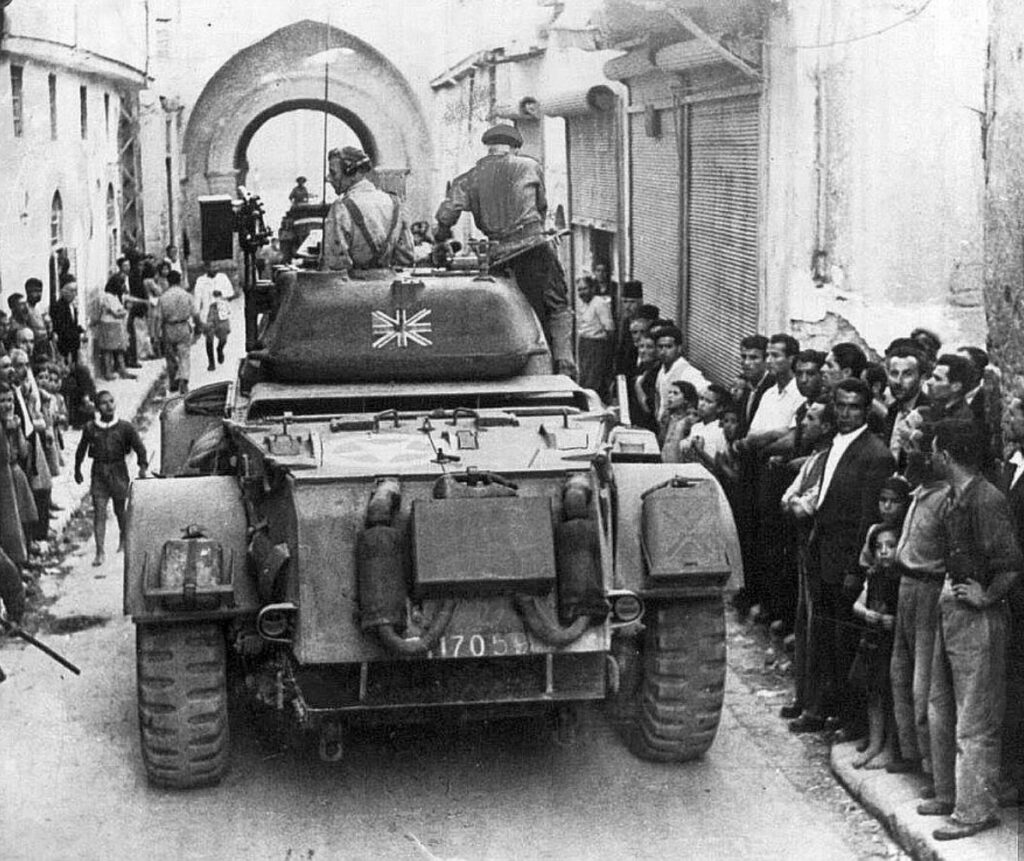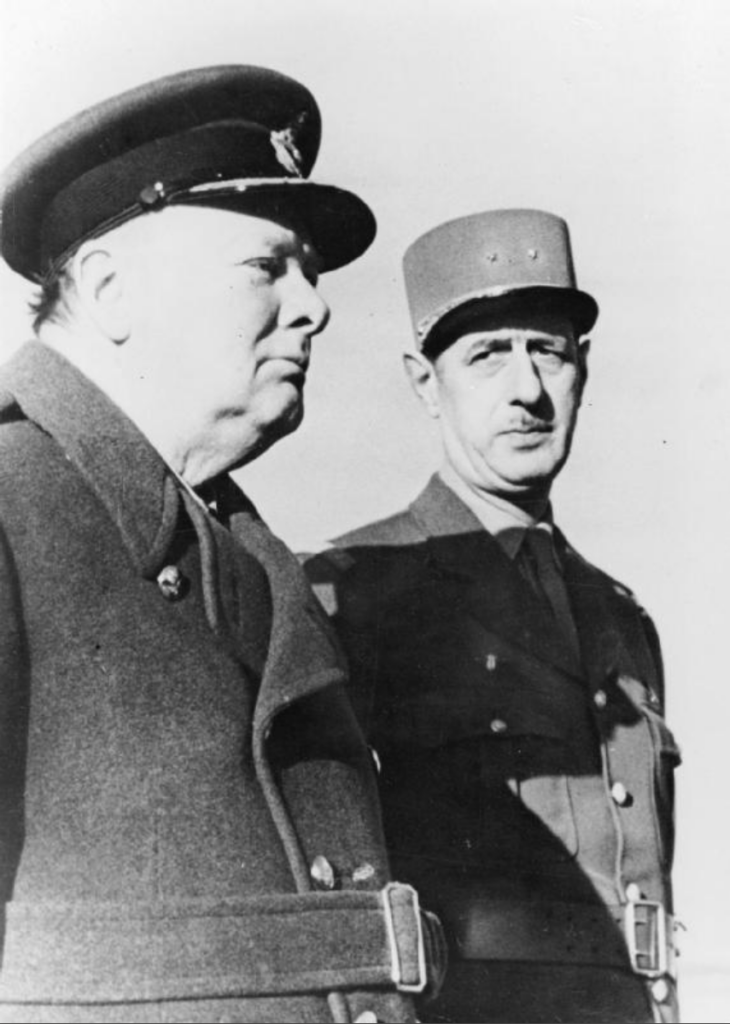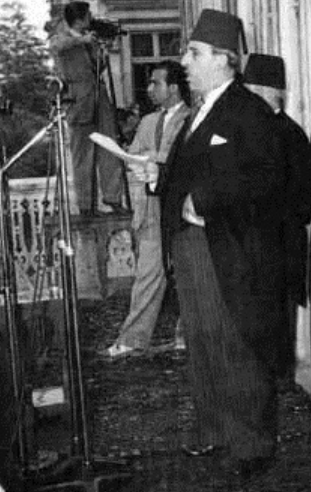79 Years Ago: Britain and France's Quarrel over the Levant

By Liam Nagle / Arab America Contributing Writer
May 1945. World War Two in Europe had drawn to a close, and the victorious Allied Powers were finalizing the borders that would define and divide Europe for the rest of the 20th century. But elsewhere, another set of borders that had been drawn up by the Europeans two decades before were causing tensions to boil to the surface. In French-controlled Syria and Lebanon, domestic demonstrations against the colonial authorities were escalating to a point of no return, and Britain had to eye the situation closely. With their relations already at a low point due to various disagreements during World War Two, and fearing that the instability in Syria and Lebanon would spread all across the Middle East, Britain was faced with a critical decision – and it chose to invade the French 79 years ago on the 31st of May.
Background and Lead-Up

The French Mandate for Syria and the Lebanon had been formed after the collapse of the Ottoman Empire and the subsequent Treaty of Sèvres in 1920. Britain, meanwhile, already controlled Egypt, and now gained the territories of Transjordan and Iraq. All of this was in accordance with the Sykes-Picot Agreement that the two countries had signed during World War One, and for the next two decades, relations between the two in the Middle East remained relatively amicable. In the French Mandate, increasing calls for independence in the 1930s led to multiple attempts at independence and, although the Syrian subdivision of the Mandate was successful in attaining nominal independence, France still controlled Syria’s military and economy. But the situation began to change when, in 1940, Nazi Germany invaded and occupied France in Europe. Given this, the Mandate for Syria and Lebanon fell under the jurisdiction of Vichy France, the German-appointed puppet government. However, this didn’t last long; the British and “Free French” – the French resistance against the Germans, led by Charles de Gaulle – invaded the Vichy-led Mandate in 1941 and brought the area under Free French control.
All of this led to another declaration of independence from the Syrian government in 1941, but this declaration would remain unrecognized until 1944. Demonstrations against the Free French government escalated in 1944, and with Germany on the backfoot and France reclaiming its European territories, more and more French troops were freed up to quell the unrest. Additional troops merely worsened the demonstrations. In 1945, when France’s new leader, Charles de Gaulle, announced that France would be establishing new military bases in the Mandate, demonstrations took a violent turn. Riots broke out, French nationals were killed, and outright battles were taking place between the colonial authorities and armed Arabs. The French responded brutally, bombarding Damascus and indiscriminately opening fire on crowds.
On May 29th, French troops stormed the Syrian parliament in an attempt to arrest President Shukri al-Quwatli and Speaker Saadallah al-Jabiri, but both managed to escape. He subsequently sent a message to British Prime Minister Winston Churchill, seeking urgent assistance by having British troops intervene. Winston Churchill and Charles de Gaulle already had a very tenuous relationship due to issues stemming from the Second World War. Despite still being on the same side, multiple disagreements between the two led to Churchill being less than happy with his French counterpart. He even went as far to say that de Gaulle was, “… one of the greatest dangers to peace and for Great Britain”, and that he was “… sure that in the long run no understanding will be reached with General de Gaulle”. As resistance against the French continued to intensify and resulted in the death of over a thousand Syrians, Churchill made his decision – British forces were to enter the Mandate.
British Intervention

On May 31st, Churchill started by stating that French forces were to immediately cease fire and to return to their barracks in order to ensure Britain and France don’t fire on one another. France initially rejected this, but when British forces entered the territory, the French were heavily outnumbered and complied with British demands. Over the next three days, British troops moved all across the Mandate, taking Damascus on June 1st and forcing the French to return to their barracks. On June 2nd, recognizing that the situation was lost, arranged for a ceasefire between Britain and France. French troops were now to obey British commands to remain in their barracks, meaning that Britain now had control over the Mandate – France was forced to oblige. With British forces now policing the Mandate, they brought back al-Quwatli to resume parliamentary control over the Syrian subdivision of the Mandate. The French viewed the whole affair as a betrayal, with accusations being raised that Britian had armed the demonstrators in order to gain control of the Mandate for itself. The United States and Soviet Union, meanwhile, agreed with the British position – the United States itself stating that France’s actions had perpetuated unrest that could threaten US interests in the region.
Britain remained in control over the Mandate for the rest of its existence – although the Mandate wouldn’t exist for long. In October of 1945, the newly-formed United Nations recognized the independence of Syria and Lebanon, admitting them both as founding members of the organization. In December of 1945, both the British and French signed an agreement to withdraw both of their countries’ forces from the Mandate by early 1946. As a result, Syria would achieve full independence on April 17th, 1946 – now celebrated as Evacuation Day. Lebanon had technically been granted independence in 1943, but nevertheless French troops would only withdraw from the country in December of 1946. Thus ended the Levant Crisis, 79 years ago.
Check out our Blog here!









